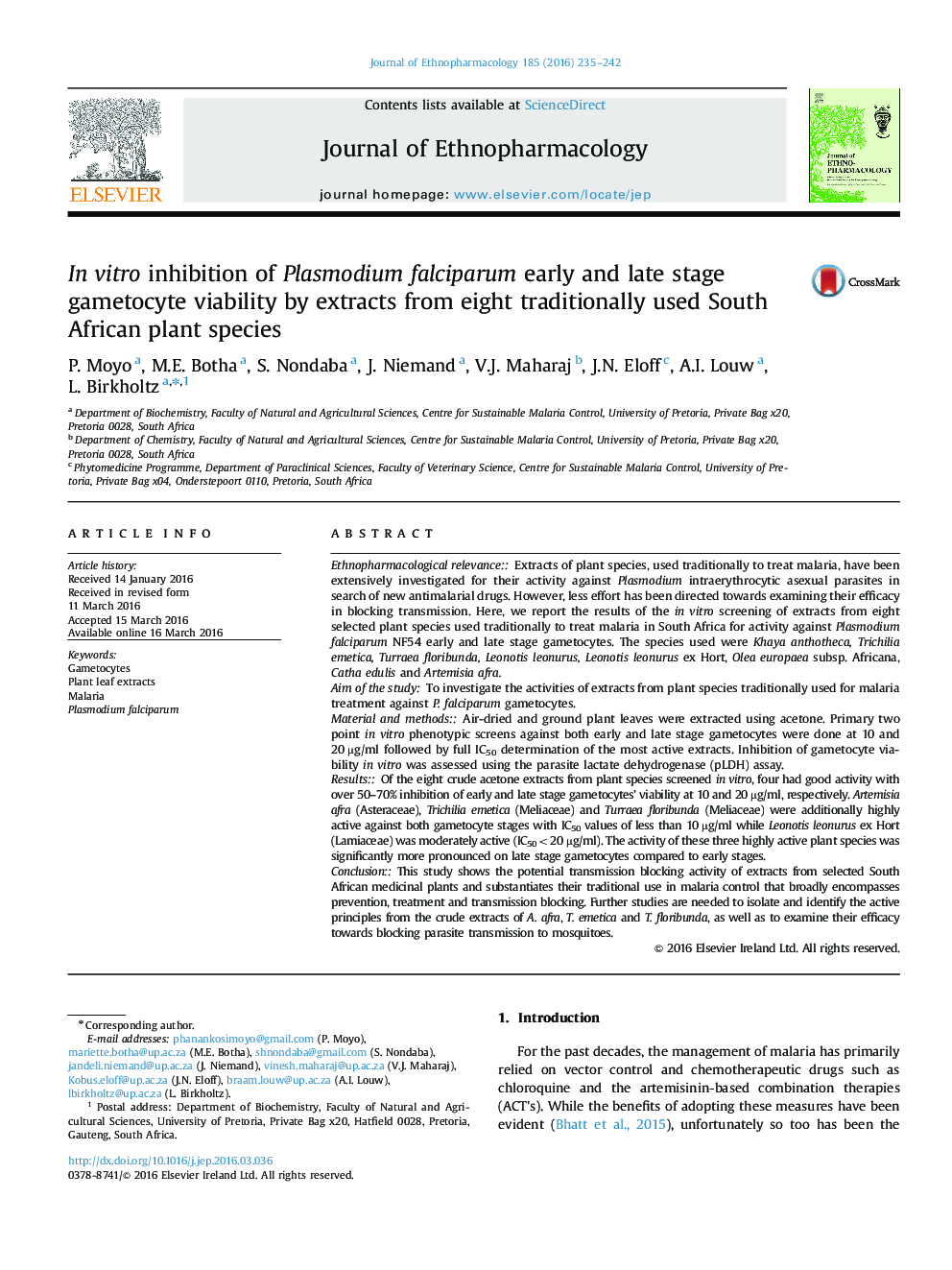| کد مقاله | کد نشریه | سال انتشار | مقاله انگلیسی | نسخه تمام متن |
|---|---|---|---|---|
| 2544840 | 1560377 | 2016 | 8 صفحه PDF | دانلود رایگان |
Ethnopharmacological relevance:Extracts of plant species, used traditionally to treat malaria, have been extensively investigated for their activity against Plasmodium intraerythrocytic asexual parasites in search of new antimalarial drugs. However, less effort has been directed towards examining their efficacy in blocking transmission. Here, we report the results of the in vitro screening of extracts from eight selected plant species used traditionally to treat malaria in South Africa for activity against Plasmodium falciparum NF54 early and late stage gametocytes. The species used were Khaya anthotheca, Trichilia emetica, Turraea floribunda, Leonotis leonurus, Leonotis leonurus ex Hort, Olea europaea subsp. Africana, Catha edulis and Artemisia afra.Aim of the studyTo investigate the activities of extracts from plant species traditionally used for malaria treatment against P. falciparum gametocytes.Material and methods:Air-dried and ground plant leaves were extracted using acetone. Primary two point in vitro phenotypic screens against both early and late stage gametocytes were done at 10 and 20 µg/ml followed by full IC50 determination of the most active extracts. Inhibition of gametocyte viability in vitro was assessed using the parasite lactate dehydrogenase (pLDH) assay.Results:Of the eight crude acetone extracts from plant species screened in vitro, four had good activity with over 50–70% inhibition of early and late stage gametocytes’ viability at 10 and 20 µg/ml, respectively. Artemisia afra (Asteraceae), Trichilia emetica (Meliaceae) and Turraea floribunda (Meliaceae) were additionally highly active against both gametocyte stages with IC50 values of less than 10 µg/ml while Leonotis leonurus ex Hort (Lamiaceae) was moderately active (IC50<20 µg/ml). The activity of these three highly active plant species was significantly more pronounced on late stage gametocytes compared to early stages.Conclusion:This study shows the potential transmission blocking activity of extracts from selected South African medicinal plants and substantiates their traditional use in malaria control that broadly encompasses prevention, treatment and transmission blocking. Further studies are needed to isolate and identify the active principles from the crude extracts of A. afra, T. emetica and T. floribunda, as well as to examine their efficacy towards blocking parasite transmission to mosquitoes.
Figure optionsDownload high-quality image (259 K)Download as PowerPoint slide
Journal: Journal of Ethnopharmacology - Volume 185, 5 June 2016, Pages 235–242
